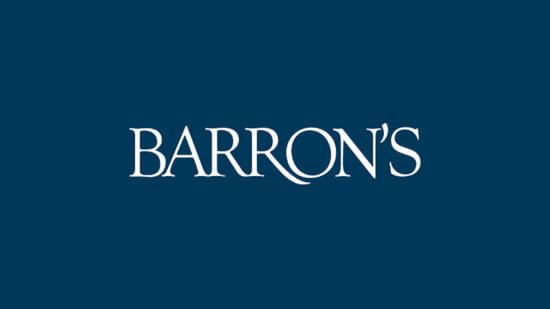
Despite severe past policies mistakes that deterred investors, President Erdogan’s return to orthodoxy makes Turkey worth reconsidering amid attractive valuations.
Erdogan Pivots from Economic Collapse to Recovery…
The significant challenge for investing in Turkey has been President Erdogan’s authoritarian rule. Since coming to power in 2002, Mr. Erdogan has transformed Turkey from a parliamentary democracy to a presidential system centered around himself through constitutional reforms in 2017. A currency crisis in 2018 triggered an inflationary spike. Even after the currency crisis dissipated, Erdogan’s economic policies were disastrous for Turkey. His determination to follow a populist monetary approach, such as lowering interest rates to fight inflation and ignoring basic economic policies, sent inflation to astronomical heights, accelerating to 85.5% in October 2022. But low mortgage and consumer rates were his priority to win elections.
However, after winning reelection in 2023, Mr. Erdogan changed his economic policies 180 degrees. With soaring inflation, negative foreign reserves – as Mr. Erdogan sold U.S. dollars and purchased Turkish lira in a failed effort to support the currency – and a gaping current account deficit, he named a new economics team consisting of Vice President Cevdet Yilmaz, Treasury Secretary and Finance Minister Mehmet Simsek, and then Central Bank Governor Hafize Gaye Erkan. This well-respected team signaled a shift towards more orthodox policies to eradicate inflation and restore investor trust. Even with the departure of Ms. Erkan from the central bank earlier this year, the market welcomed the appointment of Fatih Karahan (a former Federal Reserve Bank of New York economist) as her replacement, as seen by the benign reaction among investors.
The Central Bank Has Tightened Aggressively to Control Inflation and Support the Lira
Source: Bloomberg
Three pillars comprise the government’s priorities for Turkey’s economic recovery: reducing inflation through monetary and fiscal policies, reducing the current account deficit, and rebuilding the central bank’s forex reserves. The central bank has already raised its policy rate significantly (from 8.5% to 50% in the current cycle that began last spring) and implemented quantitative tightening policies and efforts to stabilize the lira. Although inflation remains stubbornly high, forecasters see a peak in the coming months due to these aggressive measures, amid expectations that the gap between the CPI and the policy rate will tighten further. The government set an inflation target of 36% by the end of 2024, and the central bank aims to bring inflation down to single digits by the end of 2026.
… And Is Rewarded with an Upgrade
Fitch Ratings recently rewarded the government’s economic and finance team by upgrading Ankara’s Issuer Default Rating to B+ from B and maintaining its positive outlook. The upgrade cited rising confidence in the resilience and efficacy of the government’s policies implemented since the 2023 presidential election, including monetary policy tightening and addressing the country’s macroeconomic and external vulnerabilities. Fitch continued, welcoming moderating inflation external liquidity risks, more favorable external financing conditions, higher reserves, lower FX-protected deposits and a narrowing current account deficit.
Turkey’s Underlying Animal Spirits Emerge
Turkey has several constructive aspects that make it an attractive investment opportunity. Despite the political risks associated with Turkey, earnings and aggregate economic growth continue to expand. The country has transformed from an agrarian economy through the early 1960s into an industrialized powerhouse. It is now one of the largest economies in the world, according to various measures, including GDP, GDP per capita, and purchasing power parity. Most of Turkey’s exports are manufactured goods, with over half shipped to G7 nations. Tourism is also a vital industry, accounting for roughly 12.5% of GDP. However, the need for hard currency to finance the production cycle and import purchases for manufacturing processes sometimes puts downward pressure on the Turkish lira.
Turkish Valuations Are Discounted Well Below its EM Peers and the Global Index
Source: Bloomberg
One key factor that makes Turkey appealing to investors is its valuations. Turkish stocks are trading at extreme discounts compared to their emerging market peers. Turkey’s three-year average forward price-to-earnings ratio has been approximately 5.0 since January 2021 and 8.0 since before the inflation spike in 2018, indicating a significant relative undervaluation.
Sorting Through Opportunities in Turkey
When considering investments in Turkey, focusing on companies that can navigate challenges such as inflationary pressures and foreign exchange fluctuations is crucial. Businesses that conduct transactions in U.S. dollars or other stable currencies can utilize currency fluctuations to their advantage, cushioning and offsetting inflationary pressures. Companies that can pass through inflation and outpace currency devaluation while generating solid profits are well-positioned to thrive in the Turkey market, especially at its current state.
At Thornburg, our investment screens for Turkey are more stringent due to its history of challenges and unorthodox policies. Looking for high-quality and resilient companies with excellent management and corporate governance standards is essential. Moreover, because these companies are headquartered in Turkey, they tend to trade at significant discounts compared to their emerging market counterparts while building a cushion of earnings, growth, and dividends to withstand the shocks associated with the Turkish economy, such as inflation, currency volatility, and political interference.
As an active investor, it is important to seek opportunities wherever they arise, even in challenging nations like Turkey. While there are risks involved, investment opportunities can be uncovered in a growing economy like Turkey, names that have the potential to shield portfolios from shocks such as inflation and currency volatility and even thrive in an unpredictable political environment. Two examples are Bim and Coca-Cola.
Two Examples of Turkish Firms Succeeding in a Difficult Environment
Bim is the largest grocery retailer in Turkey, with more than 10,000 locations and a roughly 15% market share. The firm was among Turkey’s first discount chain stores and has shown it can maintain its margins amid currency fluctuations and resulting inflationary pressures. Established by former Aldi managers, and operating on a similar model to Aldi in Europe and North America, Bim can defend and expand its margins through scale, allowing it to negotiate favorable prices with suppliers and through its popular bespoke private label products. Bim has demonstrated that it can organically outpace food inflation, which is indirectly driven by currency depreciation, while adding new stores and paying approximate a 4-5% annual dividend. In simple terms, this translates into an annual USD-based shareholder return in the low-teens, with a very attractive valuation.
From a valuation perspective, Bim trades far lower than its emerging market peers, near levels common among Russian grocers but without the threat of war and sanctions.
Coca-Cola İçecek A. Ş is one of the largest bottlers within the Coca-Cola Bottling System, with exposure to the third largest population of all Coca-Cola bottlers, operating in Turkey and Central and Southeast Asia. Regardless of the political and macro challenges within the geographies in which it operates (Turkey, Pakistan, Kazakhstan, and now Bangladesh), it has delivered impressive 30% EPS growth in USD terms, aided by the under-penetration in these regions coupled with management’s expertise in troubled geographies. Regardless of the political and macro challenges within its markets, Coca-Cola İçecek A. Ş has delivered 45% EPS growth in USD in 2023, faster than other publicly listed Coca-Cola bottlers. As with other names listed in Turkey, it trades at a meaningful discount to global peers, from an earnings perspective. However, since the firm prices its product in USD, that cushions it against currency volatility and resulting inflationary pressures.
Conclusion
Despite President Erdogan’s authoritarian rule and economic difficulties, Turkey presents intriguing investment possibilities. The country’s industrialization, attractive valuations, growth potential and strategic location make it an appealing market for active asset managers. However, the nation and its economic policies still face steep challenges. Inflation is sticky, and if it doesn’t start decelerating in the second half of this year, there is significant risk that Erdogan may scrap modern monetary policies and return to low the rate environment he pursued in the four years leading up to 2023’s presidential election. In other words, political risk is never far from any investor’s mind with an autocrat in charge.
Still, by carefully selecting high-quality companies and managing risks effectively, investors can uncover opportunities and potentially achieve attractive returns in Turkey’s dynamic market. Moreover, Turkish firms are unlikely to be on the radar of passive strategies as Ankara represents such a tiny sliver of nearly all emerging markets index funds or ETFs.
Discover more about:
More Insights

Thornburg Investment Income Builder Fund – 1st Quarter Update 2025

Taiwan Semi, Tencent, and Other “Quality” Favorites

Investor Spotlight: The Municipal Bond Tax Exemption

Thornburg’s History of Recognition

International Equity: The Power of Global Diversification


